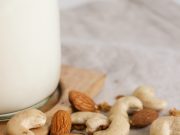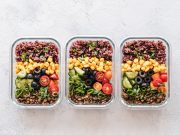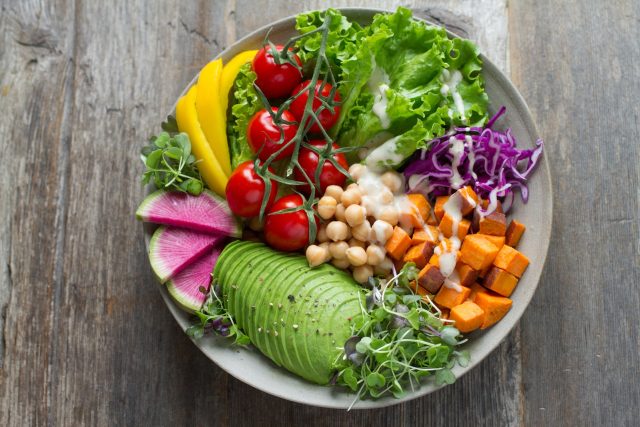Achieving a balanced diet is essential for sustaining overall health and wellness. Eating healthy food can help promote energy and vitality while providing essential nutrients your body needs to function properly. However, knowing what foods are best for you and how to incorporate them into your diet can be difficult. This article will provide delicious and healthy food choices for a balanced diet, offering insight into nutritious options that taste great.
Healthy Eating
Eating a healthy and balanced diet is essential for maintaining good health and preventing chronic diseases. A healthy diet should include a variety of nutrient-rich foods, such as fruits, vegetables, whole grains, lean proteins, and healthy fats. It’s important to limit processed and high-sugar foods and saturated and trans fats.
Eating a healthy diet can help you maintain a healthy weight, boost your energy levels, improve your mood, and reduce your risk of developing chronic diseases, such as heart disease, diabetes, and certain types of cancer. By making minor changes to your diet and focusing on nutrient-dense foods, you can start on the path to a healthier and happier life.
Benefits of a Balanced Diet
Eating a balanced and nutritious diet can benefit your physical and mental health. Here are some of the benefits of maintaining a balanced diet:
- Maintains a healthy weight: Eating a balanced diet can help you maintain a healthy weight, which is important for reducing the risk of many chronic diseases, such as heart disease, diabetes, and cancer.
- Boosts energy levels: Eating a balanced diet gives your body the nutrients it needs to function properly, which can help you feel more energized and alert throughout the day.
- Improves mood: A balanced diet can also improve your mood and reduce the risk of depression and anxiety. Foods such as fatty fish, nuts, and seeds contain omega-3 fatty acids, which can positively impact brain function.
- Reduces the risk of chronic diseases: A balanced diet that is rich in fruits, vegetables, whole grains, and lean proteins can help reduce the risk of chronic diseases such as heart disease, stroke, and certain types of cancer.
- Boosts the immune system: Eating a balanced diet can also help boost your immune system, which can help your body fight off infections and diseases.
By making healthy and balanced food choices, you can reap the benefits of a healthy diet and improve your overall health and well-being.
Macronutrients for Balance
Macronutrients are the three major components of a balanced diet: carbohydrates, proteins, and fats. These nutrients provide the body with energy, help build and repair tissues, and support overall health.
- Carbohydrates: Carbohydrates are the body’s primary energy source and come in simple and complex forms. Simple carbohydrates, such as those found in sugar and candy, provide quick energy but are not very filling. Complex carbohydrates, such as those found in whole grains and vegetables, provide longer-lasting energy and are also rich in fiber, essential for digestive health.
- Proteins: Proteins are important for building and repairing tissues in the body, such as muscles and bones. Good protein sources include lean meats, fish, eggs, dairy products, and plant-based sources like beans, lentils, and nuts.
- Fats: Fats are also an important energy source and help the body absorb vitamins and minerals. However, it’s important to choose healthy fats, such as those found in nuts, seeds, and avocados, and to limit saturated and trans fats, which can increase the risk of heart disease.
A balanced diet should include a mix of these macronutrients in the right proportions to provide the body with the nutrients it needs to function properly. Choosing various nutrient-rich foods within each category ensures you get all the vitamins and minerals your body needs.
Protein Sources
Protein is an essential nutrient that plays a vital role in building and repairing tissues in the body. Many healthy and delicious sources of protein can be included in a balanced diet. Here are some protein sources:
- Lean meats: Lean meats like chicken, turkey, beef, and pork are excellent sources of high-quality protein. They are also rich in iron, zinc, and B vitamins.
- Fish: Fish is a good protein source and rich in omega-3 fatty acids, which are important for heart health. Fatty fish like salmon, tuna, and mackerel are especially good sources of protein and omega-3s.
- Eggs: Eggs are an excellent source of protein and contain all the essential amino acids the body needs. They are also a good source of vitamins and minerals, including vitamin D and choline.
- Dairy products: Dairy products like milk, cheese, and yogurt are rich in protein and calcium, which is important for bone health.
- Plant-based sources: Plant-based protein sources include beans, lentils, peas, nuts, and seeds. These foods are also fiber-rich and other important nutrients for overall health. Including various protein sources in your diet ensures you get all the essential amino acids your body needs. It’s also important to choose lean protein sources and limit red and processed meats, which can increase the risk of certain diseases.
Carbohydrates Sources
Carbohydrates are an important energy source for the body and should make up a significant portion of a balanced diet. Here are some healthy sources of carbohydrates:
- Whole grains: Whole grains are a great source of complex carbohydrates that provide long-lasting energy and are also fiber-rich. Good sources of whole grains include oats, quinoa, brown rice, whole wheat bread, and pasta.
- Fruits: Fruits are a healthy source of simple carbohydrates, which provide quick energy. They are also rich in vitamins, minerals, and fiber. Some good fruit choices include berries, apples, bananas, and citrus fruits.
- Vegetables: Vegetables are another excellent source of complex carbohydrates, as well as other vital nutrients like vitamins, minerals, and fiber. Some good vegetable choices include leafy greens, broccoli, carrots, and sweet potatoes.
- Legumes: Legumes, such as beans, lentils, and peas, are a good source of both complex and simple carbohydrates. They are also rich in fiber and protein, making them a great choice for vegetarians and vegans.
- Dairy products: Dairy products like milk and yogurt contain carbohydrates in the form of lactose, which is a simple sugar. They are also a good source of protein and calcium.
When choosing carbohydrates, it’s important to choose complex carbohydrates over simple sugars, as they provide more sustained energy and are also more nutritious. Choosing carbohydrate sources that are low in added sugars and refined carbohydrates is also important, which can lead to weight gain and other health problems.
Fats Sources
Fats are an essential nutrient that plays many important roles in the body, including providing energy, helping to absorb vitamins, and supporting brain function. It’s important to include healthy sources of fats in your diet. Here are some examples:
- Nuts and seeds: Nuts and seeds are a great source of healthy fats, including monounsaturated and polyunsaturated fats. They are also rich in protein, fiber, and other important nutrients. Good options include almonds, walnuts, chia seeds, and flaxseeds.
- Avocado: Avocado is a great source of healthy monounsaturated fats, which can help to reduce inflammation and improve heart health. It’s also rich in fiber, vitamins, and minerals.
- Fatty fish: Fatty fish like salmon, mackerel, and sardines are excellent sources of omega-3 fatty acids, which are important for brain health and heart health. They are also a good source of protein.
- Olive oil: Olive oil is a healthy source of monounsaturated fats, which can help to reduce inflammation and improve heart health. It’s also rich in antioxidants and other important nutrients.
- Coconut: Coconut is a source of healthy saturated fats, which can provide energy and support hormone production. It’s also rich in fiber and other important nutrients.
It’s important to choose healthy sources of fats, as consuming too many unhealthy fats, like trans fats and saturated fats, can increase the risk of heart disease and other health problems. Try to incorporate a variety of healthy fats into your diet to reap the benefits.
Healthy Fruits & Vegetables

Fruits and vegetables are an essential part of a healthy and balanced diet, and there are many delicious and nutritious options to choose from. They provide a wide range of important nutrients for maintaining good health and reducing the risk of chronic diseases like heart disease, diabetes, and cancer.
Leafy greens are a particularly healthy choice, as they are rich in vitamins A, C, and K, as well as calcium, iron, and other important minerals. Some great options include spinach, kale, collard greens, and Swiss chard. These can be used in salads, smoothies, or sautéed as a side dish.
Berries are also a healthy fruit choice, as they are packed with antioxidants, vitamins, and fiber. Some great options include blueberries, raspberries, and strawberries. These can be eaten on their own as a snack or added to yogurt, oatmeal, or smoothies.
Citrus fruits like oranges, lemons, and grapefruits are also an excellent source of vitamin C, which is important for immune function and skin health. They can be eaten as a snack or used in salads, marinades, or sauces.
In addition to these options, it’s important to include a variety of other fruits and vegetables in your diet. Aim for a rainbow of colors to ensure that you are getting a wide range of nutrients. Some other great options include carrots, sweet potatoes, bell peppers, tomatoes, and broccoli. These can be roasted, sautéed, or eaten raw in salads or as a snack
Enjoy & Choose Wisely
In conclusion, healthy eating is essential to a balanced and fulfilling lifestyle. Choosing various nutrient-dense foods, including fruits, vegetables, whole grains, lean proteins, and healthy fats, provides your body with the necessary macronutrients and micronutrients to function optimally. By making wise food choices, you can also reduce your risk of chronic disease and improve your overall health and well-being. Remember to enjoy your food and choose wisely; you’ll be well on your way to a healthier, happier you.






























